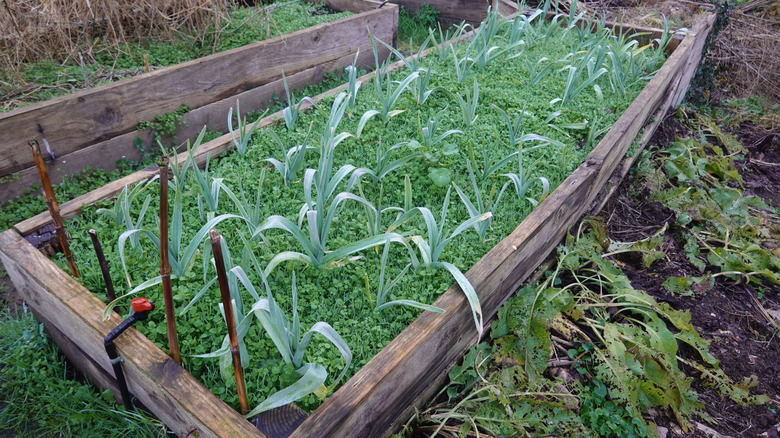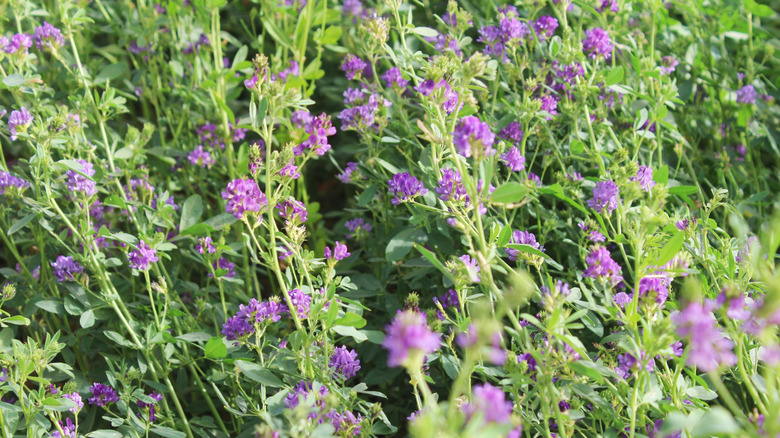The Beautiful Flowering Cover Crop That Blocks Out Pesky Weeds In The Garden
It's common for home gardeners to give their vegetable patches a spell before planting the next crop. But having the soil sitting bare can cause problems you may not be aware of. If your area experiences heavy rain and wind, you could easily lose some of that precious topsoil. Worse still, it becomes open season for weed seeds that have been laying dormant in the ground to suddenly germinate and cover your patch. You can save yourself a lot of hard work by growing a beautiful flowering cover crop that will block out those pesky weeds, and offer some benefits to your soil at the same time. There are plenty of cover crops that will help to suppress weeds in your garden, and one of the best is alfalfa (Medicago sativa). This is a legume that only grows to a height of around 2 to 3 feet, and will effectively blanket your bare soil, so weed seeds can't sprout.
A cover crop, like alfalfa, can suppress weed growth because if sown thickly enough, it will grow to cover the surface of the soil. This means that the ground is shaded from the sun, and the weed seeds that are hiding in the soil won't get the warmth that they need to germinate and grow. Alfalfa will also compete with any weeds that might break through for both nutrients and water. As a bonus, you can grow this type of plant to create healthier soil in your yard and garden.
How to grow alfalfa as a cover crop
Alfalfa is essentially a perennial herb with fine foliage and the prettiest purple globe-like flower heads over summer. If you've ever taken a drive through the countryside and saw entire fields covered in purple, you were probably looking at a crop of alfalfa, which was being grown as fodder for livestock. You might also be familiar with the easy way to grow alfalfa sprouts in a jar for a healthy harvest right on your kitchen windowsill. This highly versatile plant can do wonders for garden beds if you decide to plant it as a cover crop.
Once you've harvested all your vegetables and removed the plants as well as any weeds, lightly rake the soil and level it so you have a nice clean surface. Scatter your seeds as evenly as you can over the top of the ground. Cover them lightly with either some more soil or a thin layer of compost. Water the entire garden bed to ensure the seeds are moistened so they will germinate. Alfalfa seeds can be sown either in early fall or in spring, depending on when you want your cover plants to grow. A couple of weeks before you're ready to plant your seasonal crops, mow the alfalfa, let it sit on the soil until it dries, and then work it into the topsoil. By doing this, you'll get the additional benefit of adding lots of nitrogen to help your next crop grow abundantly.

